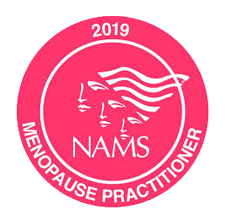Other Common Causes of Sexual Difficulties
Sexual problems in women can take many different forms and while many causes may remain mysterious, others are easier to identify, such as issues during or after pregnancy, menopause or side effects of medications.
Treatment of these issues can be wide-ranging and it’s important to work together with your provider to find solutions that work well for each individual.
The Northwest Institute for Healthy Sexuality brings together providers from many medical disciplines to ensure we not only identify the underlying cause, but also the right treatment for you.
Medication
Could sexual side effects of medication be the cause?
Women suffering from low libido may not be aware how many common medicines can affect their sex drive.
A number of common medications can cause sexual side effects in women. These side effects include simple annoyances such as dryness or drowsiness but also can include more serious problems such as a significant drop in libido. Below are some of the most common known sexual side effects from medication in women. Be sure to talk to your medical provider for more detail or if you suspect one of your medications is causing an interference in your sexual life.
Birth control
About 15 percent of women taking oral contraceptives report a decrease in libido. Some hormonal birth control methods such as pills and patches can increase women’s levels of sex-hormone-binding globulin (SHBG), which drops the amount of testosterone that’s floating around freely in the bloodstream.
Also, it is likely because birth control pills and patches lower levels of sex hormones, including testosterone. One study also found seven times the amount of the libido-killing sex hormone binding globulin (SHBG) was present in women who took oral contraceptives compared to women who never used the pill.
Anti-depressants
While depression can rob you and your partners of the benefits of a good sex life, the drugs that treat depression can often be far worse. causing not only low libido, but also difficulty with orgasm. Everyone’s body reacts differently to drugs, however, and for some, depression itself is more of a sex drive reducer than the anti-depressant’s.
Depending on the type of antidepressant, and their assessment, your physician may be able to reduce your dose, schedule your dose, or augment with another medication to increase sexual function.
Antihistamines
Antihistamines, during the time they are actively in your system, affect your love life. Over-the-counter antihistamines, such as diphendyramine (Benadryl) and chlorpheniramine (Chlor-Trimeton), are examples of antihistamines taken to lessen your allergy symptom, but these medications are lowering your libido.
Depending on the type of antihistamine, and an individual’s response, antihistamines can cause a range of mood changes from drowsiness to hyperactivity which can negatively impact sexual function. Women may experience decreased sexual desire and difficulty achieving orgasm in addition to vaginal dryness.
Antihistamines can also be found in some cough/cold combination medications. The solution for this side effect can be as easy as timing when you take them.
Pregnancy and Postpartum
Sexual issues arising from pregnancy and postpartum
Postpartum Sexual Health
Many ask if sex is safe during pregnancy. The answer is yes, sex is considered safe during all stages of a normal pregnancy. A normal pregnancy is defined as one that’s considered low-risk for complications such as miscarriage or pre-term labor. Talk to your doctor, nurse-midwife, or other pregnancy health care provider if you’re uncertain about whether you fall into this category.
However, just because sex is safe during pregnancy doesn’t mean you or your partner will want to have it. Many expectant mothers find that their desire for sex fluctuates during certain stages in the pregnancy. Also, many women find that sex becomes uncomfortable as their bodies get larger. Many partners have anxiety about the potential of sex hurting the fetus.
You and your partner should keep the lines of communication open regarding your sexual relationship. Talk about other ways to satisfy your need for intimacy, such as kissing, caressing, and holding each other.
Many pregnant women find that symptoms such as fatigue, nausea, breast tenderness, and the increased need to urinate make sex too bothersome, especially during the first trimester. Generally, fatigue and nausea subside during the second trimester, and some women find that their desire for sex increases. Also, some women find that freedom from worries about contraception, combined with a renewed sense of closeness with their partner, makes sex more fulfilling. Desire generally subsides again during the third trimester as the uterus grows even larger and the reality of what’s about to happen sets in.
Your partner’s desire for sex is likely to increase or decrease as well. Some feel even closer to their pregnant partner and enjoy the changes in their bodies. Others may experience decreased desire because of anxiety about the burdens of parenthood, or because of concerns about the health of both the mother and their unborn child. You and your partner may have trouble reconciling your identity as a sexual partner with your new (and increasingly visible) identity as an expectant mother. Again, remember that communication with your partner can be a great help in dealing with these issues.
The postpartum period is defined as the date of birth of the baby until six weeks later. The first sexual encounter after childbirth can be an important step for couples to regain their intimate relationship. For both partners, there will be adaptation necessary, such as a new parental role, and sleep deprivation. For the new mother there are hormonal changes, physical healing, and breastfeeding which contribute to a profound psycho-social challenge. There is also a potential for postpartum depression. The resumption of sexual activities and a satisfying postpartum sex life depends of many variables, some which are difficult to anticipate.
If sexual desire decreases during pregnancy and the postpartum time, this is normal for some. However, if you experience urinary or fecal incontinence, painful intercourse which is more than uncomfortable, you should seek help from a physician.
Menopause & Sexual Health
So you are menopausal or post-menopausal? The first question is, are you or your partner bothered by a change in sexual function. If not, then it is not a problem and you don’t need our help, if yes, continue reading – we can help.
The decrease of estrogen and testosterone during menopause can lead to changes in a woman’s sexual drive and functioning. Some menopausal and postmenopausal women may notice that they have a decrease in arousal, which may be accompanied by less sensitivity to touching and stroking. Menopausal women experiencing decreasing estrogen, progesterone and testosterone levels, may have symptoms which include; irritability, depression, decreased libido, vaginal dryness, decrease in vaginal length, night sweats, hot flashes, lack of sleep, incontinence, and painful sexual intercourse may occur.
Taken individually, each of these symptoms may severely impact frequency and enjoyment of sexual activity. Many times, there are more than one symptom occurring simultaneously. Furthermore, body self-image may be negatively impacted by these changes, thereby affecting the way a woman perceives herself as a sexual person. Since menopause women generally have sexual partners in the same age range, partner-related sexual dysfunction during this period may also contribute to a woman’s sexual well-being.
While this may seem daunting, symptoms associated with menopause should not prevent a woman from enjoying a healthy and fulfilling sex life. These symptoms may be managed with hormonal therapy (oral, transdermal, or vaginal). While hormone replacement therapy is not appropriate for all women, with most, it can make a significant difference in terms of alleviating symptoms and improving sexual function.
Non-hormonal therapies such as herbal supplements, acupuncture, biofeedback, stress reduction, vaginal lubricants, vaginal dilator therapy, treatment for depression, partner sexual dysfunction treatment, and treatment for urinary incontinence may be used to treat specific symptoms that are found to be related to a woman’s menopausal and postmenopausal sexual dysfunction.
Contact Us
13126 120th Ave NE
Kirkland, WA 98034
Phone: (425) 398-9355
Fax: (833) 905-2316
Email: info@drserena.com
We serve patients Monday through Friday from 8 a.m. – 4:30 p.m.
COMPLETE THE FORM TO SEND US YOUR QUESTIONS OR COMMENTS
"*" indicates required fields




